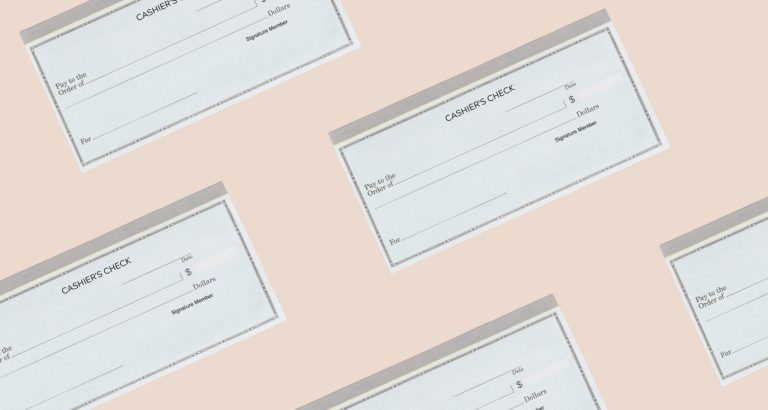How to Build Wealth in Your 30’s: 7 Essential Steps
The decade of your 30’s is extremely unique. You may buy a home, begin investing for the first time, or consider retirement in a new, more accurate way.
In your 20’s, you may try to fit in as many experiences as possible. You might have focused on education, starting a family, travel, or likely all of these.
Your 30’s tend to be more about quality than quantity. This same idea applies to your finances. When people hit this age, that’s usually when they begin to think more long-term.
It’s the perfect time to begin working more seriously on your finances. It’s also the age that a lot of people realize how important investing and saving are.
As an affiliate partner of various brands and sponsored content, HerPaperRoute may earn commission on qualifying purchases. Disclaimer | Advertise With Us
While you may feel either behind or ahead with money by this point, rest assured that this decade gives you plenty of time to make a financial plan that works.
Learning more about IRAs, website investing, real estate, debt, and income are great ways to start.
Here are the top life-changing tips for how to build wealth in your thirties.
Why Your 30’s are the Best Time to Build Wealth
Your 20’s may have been marked with education, climbing the corporate ladder, and feeling that you had endless time. Your 30’s are usually a bit different but in a good way.
At around 30 years old, you’ve likely had some time to build up your career. In addition, you are probably working a job with decent pay that you enjoy. If not, the chances are good that you either have decided what you want to do career-wise or are on the hunt for it.
Most people have ruled out what they don’t want and are more definite about what they want their life to be about by now. Your financial plans are realistic and somewhat detailed. You know how much you want to make, even if you aren’t there yet.
Lastly, your 30’s are still early enough in your career and the financial journey that you have time to build wealth. You are mature enough to make long-term decisions.
Still, you also have a lot of time for things like compound interest, career changes, and saving money. You can grow your finances over many years, and likely with some prior experience.
Keep yourself on track by actively watching your wealth grow with this free financial dashboard! It tracks your savings, investments, net worth, and more.
What Should I Do Financially In My 30’s?
Your 30’s can be a clean slate. Even if you feel like you didn’t save enough in your 20’s, it’s possible to catch up in the following decade.
Or, if you did a great job of saving and investing, you might be looking at a pretty simple ten years, financially. So check out what to do during this time of financial growth.
1. Live Below Your Means
I know, I know – boring. But it really does help! Living below your means can make all the difference.
It allows you to have extra money saved for when expenses come up.
It also leaves you with additional investing opportunities. And to top it all off, you’ll feel more in control of your finances.
So…how do you do it? I’m guessing that by age 30, you’re pretty much over anyone telling you to give up your morning coffee in the name of saving money, so let’s look at some more realistic options.
- Option 1 – Drive an older car and don’t have a car loan. While some people want to show off their fancy cars, then chances are, they don’t own it free and clear. You can be the exception. Since car payments can be hundreds of dollars a month, opt for a nice, gently used vehicle that will be safe and dependable but doesn’t remind you of its price constantly. You could save thousands a year.
- Option 2 – Use apps that save you money. A lot of apps will collect your spare change for investing or send you coupons for things you already buy. Why not save some cash? If you don’t need to pay full price, then don’t. Here are my favorite money-making apps.
- Option 3 – When you travel, be reasonable. You may think that you’re entitled to jet off to Maui because you work hard, and you deserve it. I don’t disagree. But be reasonable about travel expenses. Meaning this: save where you can. For example, if you have a work trip in the near future, can you add a day or two for sightseeing? Fly economy instead of first class. Research restaurants and attractions so you know prices in advance. Don’t give up vacations; just be a wise and frugal traveling pro.
Related: Luxury Travel Tips For When You’re On A Budget
2. Build Your Career
If you’re wondering how to build wealth in your 30’s, advance your career. While others might think that they’ve worked hard enough already, you can quietly build opportunities.
Learn new skills, network, and continue to add value to your company. Then, go for that promotion, or make a great career move to a different company entirely.
And why? Because building your career leads to a better job, higher pay, and more opportunities. So you want to enter your 40’s with tons of job experience and skills that will make you valuable to employers. It can only help you.
3. Pay Off All Debt
If there’s one thing you don’t want to tag along with you into the next decade, it’s debt. It will steal your time, energy, and hard-earned cash, especially with high interest. But you can prevent this by making a plan to tackle all debt as soon as possible.
Even if you have to work longer hours or side hustle for a short time, it will be worth it to keep yourself from carrying debt for the next ten or twenty years.
This can even include paying off your house, if possible. Because the less you pay for bills, the more money you can invest and save each year.
Related: Why Being Debt-Free is the New Rich
4. Save At Least 15% For Retirement
In your 30’s, saving for retirement is crucial. It’s okay if you haven’t started before this, but definitely don’t wait any longer.
You may want to save 15% of your income per year for your future and retirement. If 15% is too much, you can do less, although I’d recommend trying to earn a higher income instead. Or finding ways to spend less to contribute more.
This matters because while retirement may seem to be far off now, it gets closer every year. Suppose you save a good percent of your income consistently.
In that case, you put yourself in a much better financial position when you no longer want to work or cannot. Since so many recommend the 15% rule, it’s a good place to start, though more is better if you can.
5. Re-evaluate Your Insurance Coverage
While it might not be an obvious part of how to build wealth in your 30’s, the fact is it’s the perfect time to update your insurance coverage.
This includes your home or rental insurance, car, health, dental, vision, and any other type you have.
Re-evaluate if you’re overpaying for something you don’t use often or if it would be cheaper to just pay for unexpected expenses without using insurance. Things like dental or vision may fall into this category, though it’s best to consult an insurance expert.
Other things, like the car, health, and home insurance, are essential. Looking at your insurance policy is a smart move.
Talk with an insurance professional to make sure you’re completely covered and paying an amount that makes sense. This may mean paying more in some cases, but it will be worth having peace of mind. It could occasionally mean paying less if you choose to make some changes to your coverage but do so with caution and after talking with an expert.
6. Diversify Your Investments
Diversifying your investments just means that you are making a profit from multiple sources, or you expect to in the future. You aren’t expecting all of your profits to come from one place. This gives you more financial security, as well as more options.
Related: How many of the 7 income streams of millionaires do you have?
Investing in your retirement account is great, but you need to take a look at what you’re invested in within that account. Check out the companies and stocks to make sure your risk level is correct, and you are invested in things that consistently give a good return.
In addition to your retirement accounts, you may choose to look into some passive income sources that you can get started with.
These can bring you extra cash in your retirement years. There are many ways to do this, including investing, real estate, entrepreneurship, and other methods.
You can get extremely creative with diversifying your investments. The main things to remember are to do a lot of research, talk with experts, and make sure you have a good understanding of anything you’re doing financially. Otherwise, you run the risk of losing money.
7. Double Your Household Income
Doubling your household income can greatly increase your wealth. Make a goal for yourself to double your household income over the next decade, or sooner if you prefer. That way your investment and savings rates can be higher.
You can start by moving up in your company, striking out on your own with a new business venture, or some other idea. Spend time thinking about how to make more money, and the ideas will come to you.
What Is The Best Investment For A 30-Year-Old?
As a 30-something, you likely have a bit of investing know-how, even if you wouldn’t consider yourself an expert. There are a ton of opportunities for investing at this age, including IRAs, stocks, 401(K)s, and real estate.
Of course, you can pick the ones that make the most sense to you, but it is essential to diversify and select a couple of investment options for the best results. Meet with a financial planner to figure out which investments will be best for your long-term goals.
Here are some details about each investing vehicle to get you started.
401(k)
This is one of your simplest investing options. If you do nothing else, set up your 401(k) with your employer and begin adding cash to it whenever possible.
Why is this the most straightforward option? Because many companies already have this retirement account available through your job.
And a lot of times, your employer will kick in a match up to a certain percentage. That’s free cash for your future.
These accounts have high contribution limits compared to IRAs, so maxing it out is not a bad idea, either. The sooner you add money to this, the sooner you make money from it. Your 30’s give you plenty of years to earn interest before retiring.
IRA or a Roth IRA
While a 401(k) is a great starting point, it shouldn’t be your only investing account. There are some rules for this, which are discussed more thoroughly in Jacob DuBose’s article √ discussing the limits for contributing and tax requirements.
Basically, you can max out your 401(k) and your IRA each year. Still, there are some tax deductions with a traditional IRA you can potentially miss out on, so that’s important to be aware of.
It’s still a great idea to invest as much as possible into these accounts, so you ensure that you have enough to live on in retirement, though. Check out this IRS web page that explains the limits for IRAs.
Related: Can You Lose Money In A Roth IRA?
Stocks and Bonds
These are the bread and butter of investing, and typically they are a big part of mutual funds and index funds. You can buy these individually, but many decide to purchase index funds for the sake of diversity instead.
If you own a stock you own a part of a corporation, and there are many different kinds. On the other hand, a bond is kind of like loaning money to someone and then making interest off of their profits. They are eventually supposed to repay you for it.
Real Estate
Real estate is one of those things that can make a considerable profit, but it only works if you follow a few principles. First of all, if you plan to buy real estate or land, know the market.
Buy in a location that makes sense for you financially and geographically. Second, understand when something is over or undervalued, and try to buy at a good time.
Next, you make money faster if you don’t bring debt into it. That means it’s better to save up for real estate than take out a loan.
Otherwise, if you rent the property, the renters may simply be paying the mortgage rather than paying you passive income. If you do end up needing to get a loan for a property, I recommend paying it off as quickly as possible for maximum profit.
Last, know when to sell. Sometimes people buy a home or land, intending to sell it later. This can work out great if you buy low and hold onto the property for several years, only selling when the value is much higher than the original cost. The chances are good that housing prices will go up over the years, not down, even if there are dips in the market.
Remember that real estate can an excellent investment, but it can also be a bit of a gamble. If you don’t carry any debt on the property, you save yourself some risk. And rental properties can be a great place to begin because of passive income opportunities.
With all investment opportunities, you should never take someone else’s word on it. It’s up to you to fully understand what you’re investing in.
Being knowledgeable will help prevent you from being scammed and allow you to build wealth.
How much money should you have saved by age 35?
You must have, at the very least, an emergency fund saved by this age. Your emergency fund is typically around 6 months or so of expenses, though it can be more or less if you prefer. This is a minimum for savings, but investing is a different story.
An excellent place to begin is with what the experts say. According to Fidelity, you should try to have at least 2 years of your annual income saved by age 35.
If you space this out over several years and then break it down by month, it isn’t as intimidating of a number. Obviously, you need to look at your own finances and determine what is necessary, but you can start here.
This is how to build wealth in your 30’s
These steps are how to build wealth in your 30’s. You may feel like it’s too much information at once, but the basics are simple.
Eliminate debt, increase your income, invest, and diversify your investments. If you practice these four things constantly, you’ll arrive at your 40’s in good shape.
Another thing to consider is any type of career moves or different budgeting ideas you want to try. Your early 30’s are a great time to test money ideas and see what works for you.
You still have plenty of time for investing and saving, but you likely have more money than you did years ago.
Enjoy your 30’s and the financial opportunities this decade brings. This is a great time for career advancement, making more money, and investing early.
Reading this article already puts you way ahead of the game when it comes to money. Gathering more knowledge is a surefire way to increase your potential and will teach you how to build wealth in your 30’s.
Related Articles:







![Check Stolen From Mail and Cashed [What to Do Right Now!] 5 Check Stolen From Mail and Cashed [What to Do Right Now!]](https://herpaperroute.com/wp-content/uploads/2022/09/Check-Stolen-From-Mail-and-Cashed-768x410.jpeg)



![What is Your Liquid Net Worth? [Meaning, Tracking, and How to Calculate It] 9 What is Your Liquid Net Worth? [Meaning, Tracking, and How to Calculate It]](https://herpaperroute.com/wp-content/uploads/2022/04/What-is-Your-Liquid-Net-Worth-768x410.png)
